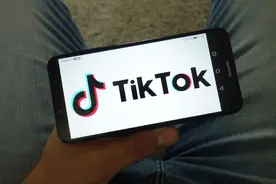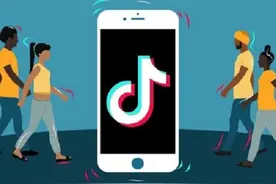In July 2020, the same month that former President Trump said that he would ban TikTok in the United States, Callie Goodwin of Columbia, South Carolina, released her first video on the app to promote her small business.A neighbor sent her some brownies and a handwritten note during her isolation.Inspired, Goodwin decided to launch a customized greeting card company called Sparks of Joy Co.A few months later, a TikTok celebrity with about 2 million fans showed Goodwin's products in the video, and Goodwin's business began to soar.Goodwin, 28, told CNN that more than 90% of her current orders come from TikTok."If TikTok is banned, my business will plummet," Goodwin worried."I will lose most of my sales." For most of the past two years, the discussion about banning TikTok completely seems to be fading.The popularity of TikTok continues to grow.According to the data of the analysis company Sensor Tower, it was the largest application downloaded in the United States last year, and will still be the largest application downloaded since the beginning of the year in 2022.In this process, TikTok, which has 100 million American users, has become more important to American culture and the livelihood of influencers and entrepreneurs like Goodwin.But suddenly, TikTok's future in the United States seems more uncertain than at any time since July 2020.More and more Republican governors recently announced that government employees were prohibited from using TikTok.On Thursday alone, state employees in several states used government equipment.The state attorney general and the Republican commissioner of the Federal Communications Commission pressed Apple and Google respectively to take stricter measures against the application.Earlier this week, three US lawmakers led by the Supreme Republican Senator of the Senate Intelligence Committee, Marco Rubio, proposed a bill to ban the use of TikTok in the United States again on the basis of the parent company's base in China.TikTok was attacked in Washington for its relationship with China through its parent company.Earlier this year, a Buzzfeed News report said that some US user data had been repeatedly accessed from China, quoting an employee who said that "everything can be seen in China", and criticism kept rising.As far as TikTok is concerned, it has been confirmed that US user data can be accessed by some Chinese employees.For many years, TikTok has been negotiating with the U.S.government and the U.S.Foreign Investment Commission (CFIUS) to resolve outstanding national security issues and allow the application to continue to operate in the United States.Recently, it has been reported that these negotiations have not made progress.Some national security experts said that TikTok's huge influence may only make
-
Home
-
Product
SolutionsmanagementUnified management of multiple mobile phones and accounts
Marketing automationUse scripts instead of manual automation to run APP applications
Self-developed scriptJavascript can be used to develop all mobile terminal automation operations
SolutionsData monitoringMulti-dimensional monitoring account and peer online red data
analysis reportMulti-dimensional analysis report of data
-
About






Comment Cancel reply